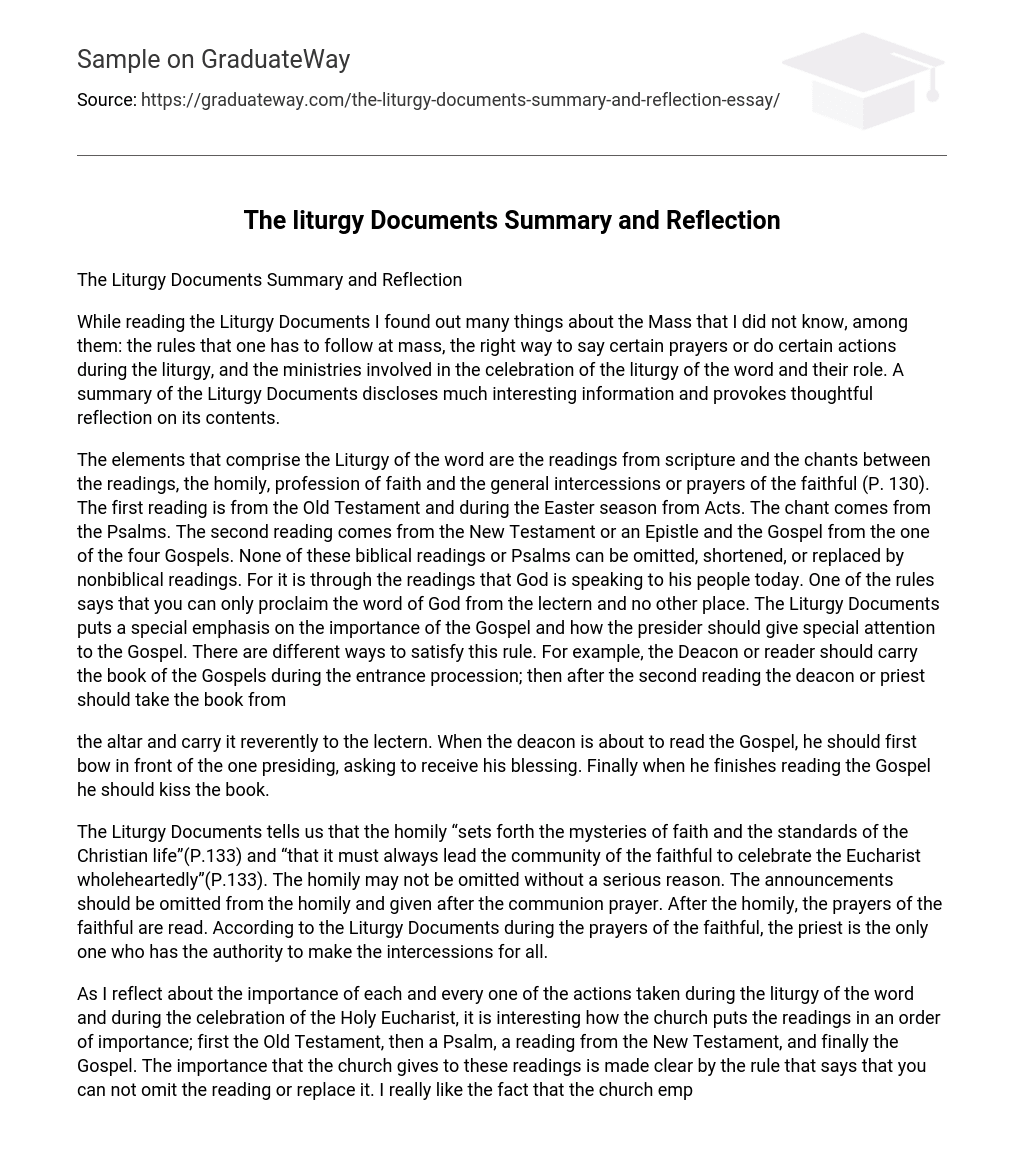The Liturgy Documents Summary and Reflection
While reading the Liturgy Documents I found out many things about the Mass that I did not know, among them: the rules that one has to follow at mass, the right way to say certain prayers or do certain actions during the liturgy, and the ministries involved in the celebration of the liturgy of the word and their role. A summary of the Liturgy Documents discloses much interesting information and provokes thoughtful reflection on its contents.
As I reflect about the importance of each and every one of the actions taken during the liturgy of the word and during the celebration of the Holy Eucharist, it is interesting how the church puts the readings in an order of importance; first the Old Testament, then a Psalm, a reading from the New Testament, and finally the Gospel. The importance that the church gives to these readings is made clear by the rule that says that you can not omit the reading or replace it. I really like the fact that the church emphasizes the importance of the Gospel with all the little ritual details. The actions that are performed before, during and after the homily show respect, value, and dignity for the Word of God. It is God himself using the readers as instruments to transmit His holy message.
According to what I understood from the Liturgy Documents I discovered that the purpose of the homily is to prepare the congregation to receive the Almighty Son of
God in a tangible form. It is the presider that breaks open the word of God.
I believe that the reason other people are not allowed to preach during the homilies is because the church wants to make sure that people’s hearts are touched to acknowledge the greatness of what they are about to receive, not a piece of bread and a drink of wine, but the body and blood of He who gave his life to save us, Jesus Christ.
How interesting the Liturgy on the word really is! What precision goes into its very format! Really, everything is spelled out, so that the people of God can have an edifying experience. The Liturgy Documents certainly contain the total experience of joyful praise, adoration, thanksgiving, and petition to the Lord.
It is a shame that not all clergy follow the dictates of these writings. It saddens and upsets me when Priests sometimes are not infused with the Holy Spirit yet; they expect their congregation to be infused. Another thing that bothers me is when Priests makes certain changes in the Liturgy. For example: I knew a priest who wrote all the prayers and then used them during the mass. Once a Priest asked a member of the congregation who was sitting on the corner of the first pew to move to a different pew. The man got up and moved, then the Priest stood on the pew and gave his homily from that spot. The efficacy of the Gospel is taken away from, when Priests vary from the Importance of the liturgy that surrounds the Gospel, the very word of Christ. In essence this work has opened up in my mind some of the things that are not Liturgically sound, but also those things that are.
The Liturgy Documents Vol. I





